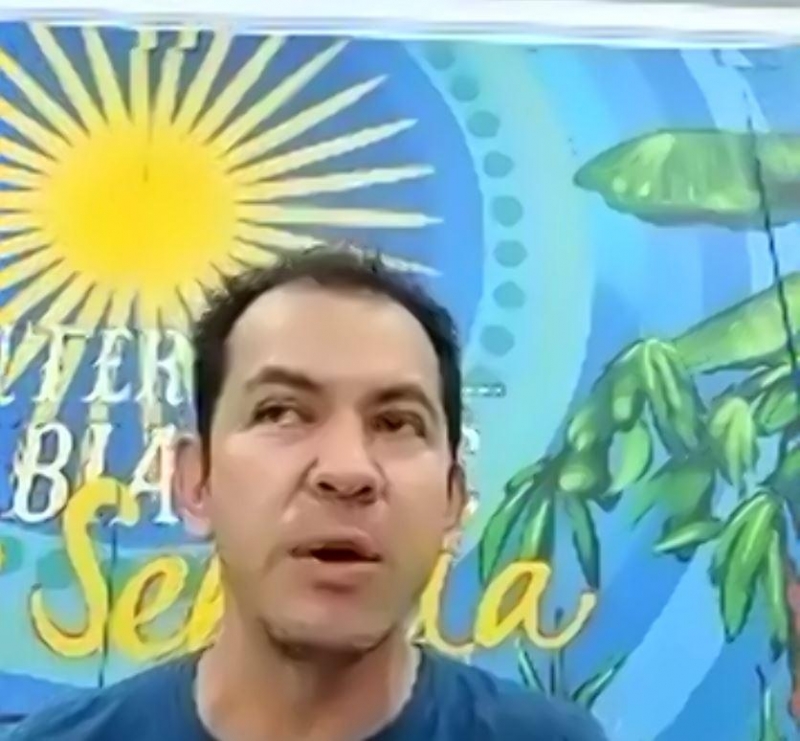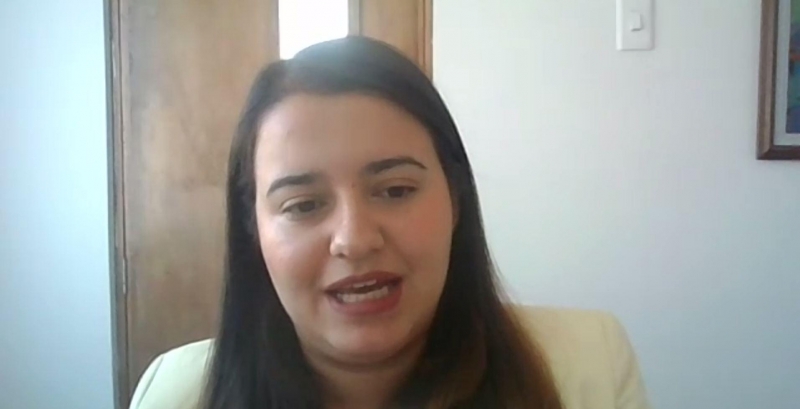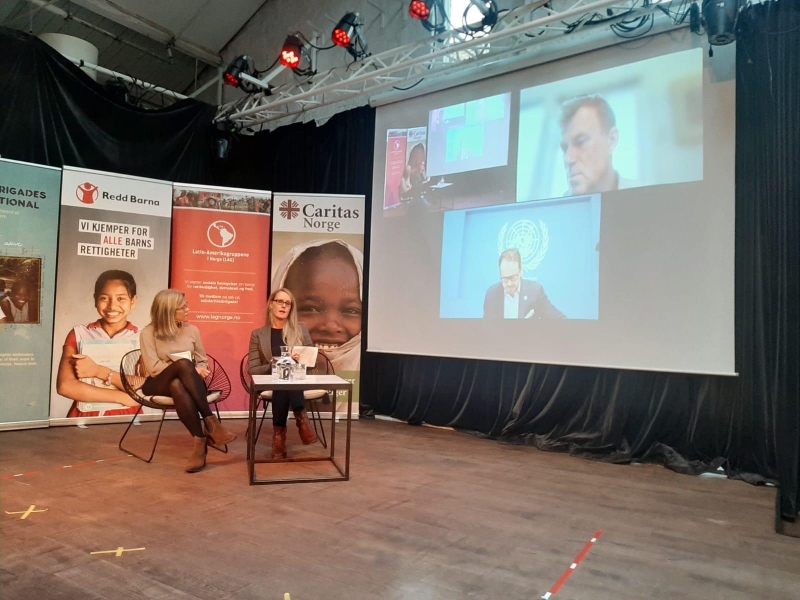On 18th of November, the Norwegian Colombia Forum organized the eighth conference of "Together for Peace in Colombia" on the peace agreement and the role of civil society and the Norwegian state.
The event was held in Oslo, Norway, and focused on the relationship between democracy and the peace agreement. It was attended by Colombian civil society organizations, NGOs, political parties and the international community. The NHRF supports this event as a member and coordinator of the Colombia Forum.
The first panel dealt with the relationship between peace and democracy in Colombia and included several testimonies reflecting on this link. At the end of the panel, Cecilia Bailliet, professor at the University of Oslo, shared some data on the context of violence in the country and called for the inclusion of children and youth in public policies. She was also optimistic: "I think peace is possible everywhere. I believe that there is great potential in the Colombian people to create peace and democracy".

Civil society and the democratic space in Colombia were the topics of discussion in the following conversation with the participation of several Colombian organizations and social movements. Jimmy Moreno, national spokesperson for the Congreso de los Pueblos, and who has just been released from prison after being prosecuted for his work in defense of the environment, vindicated the role of social movements: "We have the perspective of building new visions for the defense of life, territory, and country. We make a strong call for the social movement not to be persecuted," he said. He called on the international community to stop financing Colombia's public forces.
Lucia Aldana, executive director of Corporación Jurídica Yira Castro, an organization that works mainly accompanying victims of forced disappearance, analyzed the complicated situation faced by those who defend human rights. Among the factors she points to, Aldana indicates the lack of distribution of power as a key one. "There is a high concentration of power and a lack of checks and balances. There has to be effective control of the executive for there to be democracy," she commented.
Jonathan Bock, executive director of the Foundation for Freedom of the Press (FLIP), a benchmark in the defense of freedom of expression, explained the government's response to the national strike protests of April 28th of this year. Bock explained that "there was no reaction" on the part of the authorities, when 60% of the attacks on journalists were committed by State forces.

The role of the indigenous communities was also represented at this meeting. Miyer Merchán, is a social leader of the National Indigenous Organization of Colombia (ONIC) and spoke about the situation of this communities in the regions and the response they had from the government. "It has a null government agenda, which does not defend our priorities and without a capacity for dialogue with social actors."
The international community's support for peace
The last part of the event focused on recognizing the importance of the international community's support for peace in Colombia. Carlos Ruiz Massieu, Head of the United Nations Verification Mission in Colombia, highlighted the great step forward of having a peace agreement and affirmed that there should be no "discontinuation of efforts to continue with the implementation". He added: "Maintaining this support is necessary".
Caroline Aarsæther, NHRF Colombia's Country Director, highlighted that there were "many achievements" in terms of transitional justice. However, she stressed that the security situation for human rights defenders "is worse and they are in danger". And she complemented that the international community must pay attention to the territories. "They want us not to leave them alone and to support them," she concluded.

Finally, Jon Otto Brødholt, special envoy of the Norwegian Ministry of Foreign Affairs, congratulated Colombia for its achievements in recent years. He also acknowledged that the support of the international community "must also grow". And finally, he called on "all parties to continue implementing".
This event also took place during the month that marks five years since the signing of the peace agreement in Colombia, and the NHRF ratifies its commitment to peace in this country where it currently supports 46 projects, through which it strengthens the role of human rights defenders working for peace.

